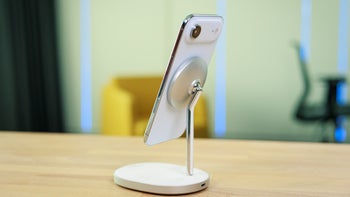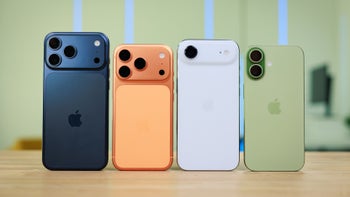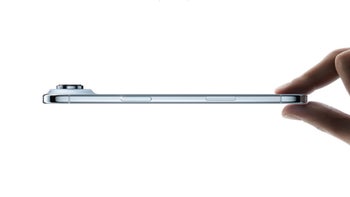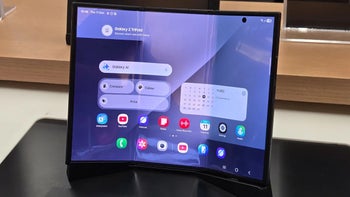Apple: we fix iPhones at a loss, Right to Repair proponents cry 'absurd!'

After getting a shipment of iPhone screens from Hong Kong seized at customs, he was contacted by Apple lawyers who tried to sweet talk him into signing an agreement not to use or distribute such parts any more. No passaran, said Mr Huseby, and, knowing the liberal Norwegian system, hired an attorney: "They threw all kinds of claims against me and told me the laws and acted so friendly and just wanted me to sign the letter so it would all be over. I had a good lawyer that completely understood the problem, did good research, and read the law correctly." Long story short, since the iPhone 6 and 6s displays in question were refurbished using genuine Apple parts from broken iPhones, the court sided with the repair shop owner, issuing the following statement:
Apple has been fighting those same small shops at home and abroad for a while, but back in August, it decided to preempt the legislation, and issued a press release announcing that more independent repair businesses will have access to the same genuine parts, tools and other resources as Apple Authorized Service Providers.
In a new twist on the matter, Apple claimed in a testimony before one Congressional judiciary committee in charge of investigating anti-competitive repair pratices that it is actually losing money on repairs, authorized monopoly or not:
For each year since 2009, the costs of providing repair services has exceeded the revenue generated by repairs.
Apple, IBM, Cisco and other tech giants have been fighting tooth and nail against the Right to Repair acts passage, as, they argue, they want to control the repair process to ensure safety and environmental compliance, and Apple listed an argument in that same vein during the committee hearing:
Our goal is to achieve a safe and reliable repair for our customers, whether that repair is done by Apple or a service provider designated by Apple. Apple has spent time and money to make Apple devices incredibly user friendly—but they are still complex, very technical machines. And there are a number of factors that go into achieving the goal of ensuring repairs on these complex devices are safe and reliable.
Genuine Apple parts are designed, tested and manufactured for Apple quality and performance standards. If a customer needs an Apple device repaired, it’s important that the repair be conducted by a certified technician who has completed Apple service training and who uses genuine Apple parts and tools. Repairs performed by untrained technicians might not follow proper safety and repair procedures and could result in improper function, product quality issues or safety events.
Additionally, repairs that do not properly replace screws or cowlings might leave behind loose parts that could damage a component such as the battery, causing overheating or resulting in injury. For these reasons, we believe it is important for repair shops to receive proper training when obtaining access to spare parts and repair manuals. We continue to expand the number of locations where consumers can get repairs, while maintaining a priority on safety and reliability.
Genuine Apple parts are designed, tested and manufactured for Apple quality and performance standards. If a customer needs an Apple device repaired, it’s important that the repair be conducted by a certified technician who has completed Apple service training and who uses genuine Apple parts and tools. Repairs performed by untrained technicians might not follow proper safety and repair procedures and could result in improper function, product quality issues or safety events.
Additionally, repairs that do not properly replace screws or cowlings might leave behind loose parts that could damage a component such as the battery, causing overheating or resulting in injury. For these reasons, we believe it is important for repair shops to receive proper training when obtaining access to spare parts and repair manuals. We continue to expand the number of locations where consumers can get repairs, while maintaining a priority on safety and reliability.
The Right to Repair Act proponents, however, beg to disagree, and say that in the last two decades manufacturers have monopolized repairs by withholding manuals, and introducing custom parts, down to the pentalobe screws that Apple uses in its iPhones. Needless to say, they issued their own statements over Apple's "money-losing" comments. As per Nathan Proctor, Director of the Campaign for the Right to Repair:
Apple’s argument is absurd. In defending their decision not to make spare parts or service information available, the company claims that certain parts and information are necessary for a reliable repair. It’s a totally circular argument. Apple wants their customers, and the federal government, to accept the notion that while a repair monopoly exists, it’s a beneficial monopoly, made for our good.
In addition, Mrs Gordon-Byrne, an executive director of the trade organization Repair.org, piled on that there are stipulation Apple scoffs at independent repair shops, and deliberately makes their lives harder:
We’ve replaced hundreds of batteries and screens for legislators while they watch…these repairs aren’t rocket science...
The problem was bad enough that some stores stopped working on iPhones. Other issued refunds to affected customers. On the iPhone 11 and 11 Pro, a pop-up constantly tells the user their screen isn’t a verified replacement part.
Apple has twice pushed out iOS updates that killed the touch functionality of screens repaired by third parties. People who had broken their screens and either repaired themselves or had them repaired by a non-Apple associated store, woke up after an iOS update to find their touch screens didn’t work.
The arguments seem to be far from over, and Apple may have to provide cold hard numbers to the oversight committee, demonstrating that even the official repairs are a money-losing aspect of its business, in order to deflect some of the Right to Repair heat away.
Follow us on Google News













Things that are NOT allowed:
To help keep our community safe and free from spam, we apply temporary limits to newly created accounts: